A Time for Tears

“Rivers of water run down from my eyes, because men do not keep Your law.” (Psalm 119.136)
It is not hard to discern that we live in an age of shaky moral standards. From entertainment to advertising to news stories, we are confronted with images and messages that challenge Biblical morality. The murder of unborn babies is justified in the name of choice. Immigrants are vilified in the name of patriotism. Sexual mores have been cast aside in the name of personal freedom. Greed and oppression are justified in the name of capitalism. How are we as Christians to respond when people around us reject the principles of God’s law?
One possible response is to rally the troops so we can loudly and publicly denounce all that we perceive to be ungodly. We can take to the streets with slogans on banners and fists in the air. There is no doubt that this approach yields results. The media love to focus their cameras on the faces of angry Christians and to thrust their microphones before those who are ranting and raving. The louder and loonier you are, the easier it is to get attention. Yet, is this what God would have us do?
The psalmist points us in a different direction with the testimony, “Rivers of water run down from my eyes, because men do not keep Your law.” Why was weeping his response to the law-breaking of others? Why was he not satisfied simply to keep the law himself? The answer is that he was filled with a profound love for God and neighbor, which is what Jesus said the law was all about (Matthew 22.37-40).
If you really love someone, you take offense when others treat him with dishonor. God is the great lawgiver, and His law is an expression of His character of holiness, justice, righteousness, and love. When men and women ignore that law, they are thumbing their noses at the Lawgiver (whether they realize it or not). The psalmist’s love for God causes him to grieve when others don’t give God the honor He is due.
If you really love someone, you also want the best for her. God is our Creator, who knows what is best for us and has revealed that in His revelation in Scripture. When our neighbor is defying God’s law, she is missing out on the blessings that God has in store for her. The psalmist’s love for neighbor causes him to weep when others aren’t experiencing the benefits that attend obedience to their Creator.
We can learn some important lessons from the author of Psalm 119. The next time someone who is defying God’s law gets your attention, ask yourself a few questions before you respond. Is my primary concern in this situation the honor of God? Will my response be motivated by genuine love for the one with whom I disagree? I fear that if we were honest, we’d have to say that the answers to these questions would oftentimes be “No.” It is all too easy to act out of self-interest that is perceived (often justly) as self-righteousness. We can be consumed with concern for our own honor (not God’s) and love for self (not neighbor).
This is not to say that it is never appropriate to take a public stand on moral issues of the day. Love can require this! But how we express ourselves is all-important. We should always and only do so with weeping. That may or may not involve literal tears, but that image should express the disposition of hearts driven by genuine love for God and others. It may not put us in the headlines, but we are far more likely to have a positive moral impact in society if we lead with love and not anger. If we never take time for tears, then the most productive thing we can probably do is remain silent and pray that God would soften our hearts.
Reformation Conference, Oct. 27-28
Dr. W. Duncan Rankin will be our speaker at this year’s Reformation Conference, focusing on the Scottish Reformation. Read this full post for details and schedule.
Continue readingDr. King’s Dream and the Kingdom of God
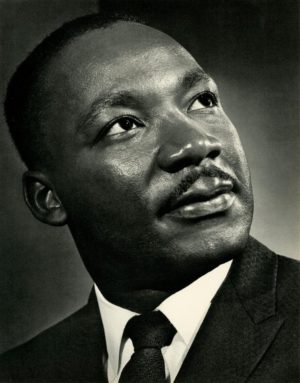
Fifty years after the death of Rev. Martin Luther King, Jr., there is still value in reflecting upon his dream. That dream was perhaps expressed most memorably in his speech during the “March on Washington for Jobs and Freedom” on August 28, 1963. To several hundred thousand gathered at the Lincoln Memorial (and to President Kennedy watching the live television broadcast), Dr. King shared his hopeful vision of justice and equality in our land. It was a defining moment of the civil rights movement. It was also an address steeped in Biblical language that directs us to consider the implications of the Kingdom of God for church and culture.
In its historical context of long-standing discrimination and simmering racial tension, Dr. King’s vision was bold and filled with hope:
I have a dream that one day this nation will rise up, live out the true meaning of its creed: “We hold these truths to be self-evident, that all men are created equal.”
I have a dream that one day on the red hills of Georgia sons of former slaves and the sons of former slave-owners will be able to sit down together at the table of brotherhood. I have a dream that one day even the state of Mississippi, a state sweltering with the heat of injustice, sweltering with the heat of oppression, will be transformed into an oasis of freedom and justice.
I have a dream that my four little children will one day live in a nation where they will not be judged by the color of their skin but by the content of their character.
King set his plea in the context of American history, appealing to the Declaration of Independence, the Constitution, and Lincoln’s Emancipation Proclamation. But he drew on more than our nation’s political heritage in his oratory. The third generation Baptist minister found words in Scripture, especially the prophetic tradition, to express both discontent with present injustice and hope for better things to come. King echoed Amos, declaring, “No, no, we are not satisfied, and we will not be satisfied until justice rolls down like waters and righteousness like a mighty stream” (cf. Amos 5:24). And he drew from Isaiah 40:4-5 to express his vision in Biblical terms:
I have a dream that one day every valley shall be exalted, every hill and mountain shall be made low. The rough places will be made plain, and the crooked places will be made straight. And the glory of the Lord shall be revealed, and all flesh shall see it together. This is our hope. This is the faith that I go back to the South with…. With this faith we will be able to transform the jangling discords of our nation into a beautiful symphony of brotherhood.
Martin Luther King’s dream was truly one of Biblical proportions.
Over 1900 years before Dr. King’s speech, Luke the evangelist quoted the same verses from Isaiah 40 when introducing John the Baptizer (Luke 3:4-6). He understood John as paving the way for Jesus to come and fulfill prophecy, and he tells us that Jesus himself quoted Isaiah when reading aloud in the synagogue at Nazareth: “The Spirit of the Lord is upon Me, because He has anointed Me to preach the gospel to the poor; He has sent me … to set at liberty those who are oppressed, to proclaim the acceptable year of the Lord.” (Luke 4:18-19, NKJV).
Throughout his gospel, Luke shows Jesus’ special concern for the poor and the oppressed. In accord with the ancient prophetic vision, Jesus was ushering in a Kingdom that would be marked by justice and righteousness. And all in that Kingdom are called to love their neighbors and pursue such justice.
Dr. King’s dream is rooted in Scriptural promise that ultimately will only be fulfilled in the Kingdom of God, but that doesn’t mean Christians are exempt from pursuing that dream now. In Jesus, the Kingdom of God broke into history and is now growing toward fulfillment. We are called to embrace a Kingdom vision now and to live by Kingdom values now – the kind of values that promote equality, racial harmony, and care for the downtrodden. The world should be able to look at the church and see it leading the way in matters of racial harmony and social justice. Within the church, King’s dream of racial reconciliation and equal treatment should be a present reality because that is what Jesus’ Kingdom demands. And as more and more hearts and minds are changed by the gospel, we should see Kingdom values increasingly infusing our culture and showing the power of Christ to accomplish what worldly politics has failed to achieve.
Thankfully, we have made positive strides as a nation in the direction of realizing Dr. King’s dream. The two terms served by an African-American man in the White House are proof of that. But only someone whose eyes are blinded to reality would think that we’ve fully achieved a “beautiful symphony of brotherhood.” The vestiges of racism linger, even sometimes within the church. There is still a long way to go. Perhaps the anniversary of Dr. King’s death can be a time when we, as Christians, reflect upon the call of the Kingdom of God on our lives and commit ourselves afresh to working to make the Biblical dream come true.
Easter and New Creation
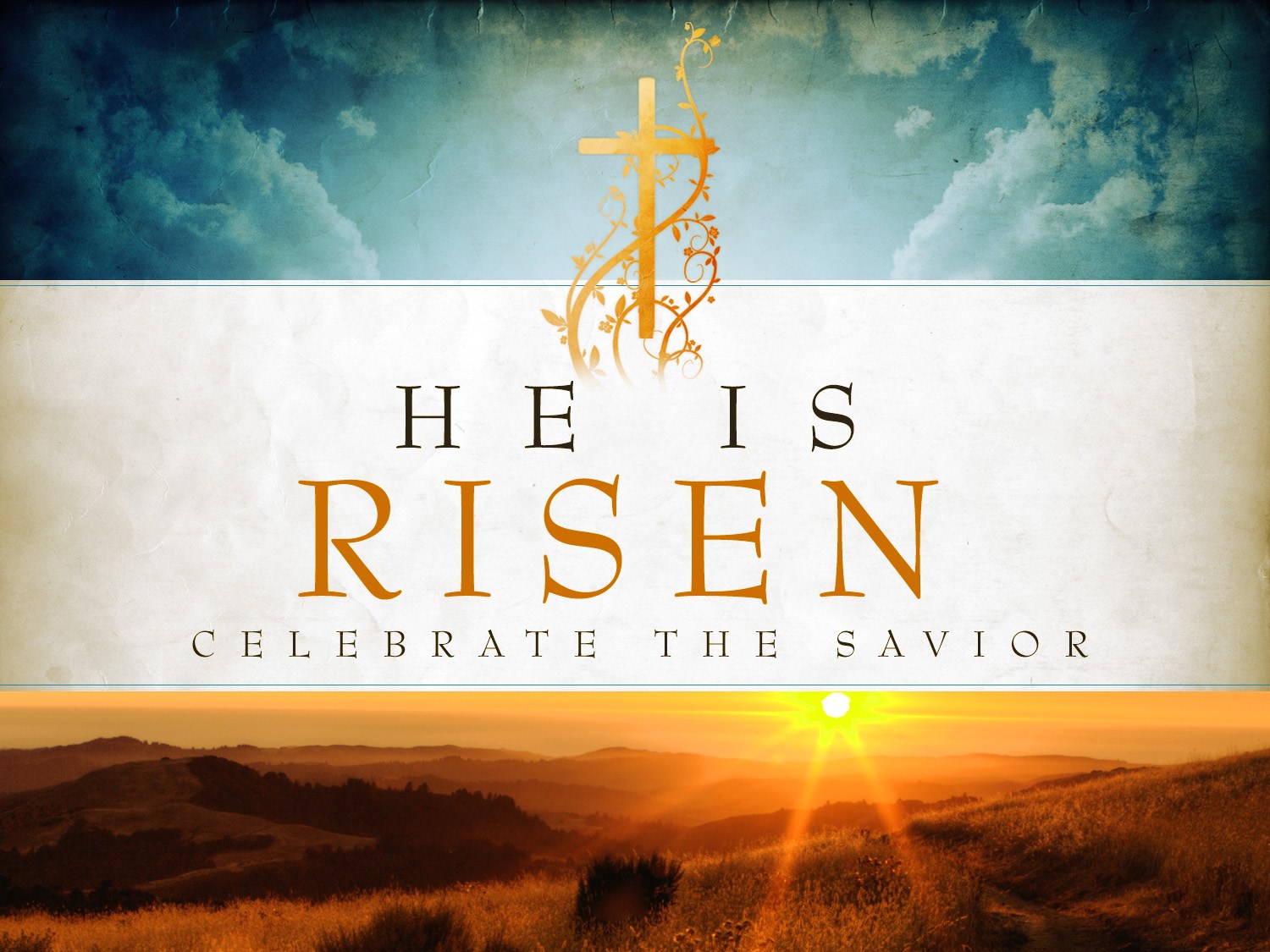
Now if Christ is preached that He has been raised from the dead, how do some among you say that there is no resurrection of the dead? But if there is no resurrection of the dead, then Christ is not risen…. But now Christ is risen from the dead, and has become the firstfruits of those who have fallen asleep. For since by man came death, by Man also came the resurrection of the dead. For as in Adam all die, even so in Christ shall all be made alive. But each one in his own order: Christ the firstfruits, afterward those who are Christ’s as His coming. Then comes the end, when He delivers the Kingdom to God the Father, when He puts an end to all rule and all authority and power. For He must reign till He has put all enemies under His feet. The last enemy that will be destroyed is death. (1 Corinthians 15.12-13, 20-26, NKJV)
The Apostle Paul recognized the cosmic significance of the resurrection of Christ. As he reflects upon the historical reality of that event in 1 Corinthians 15, his mind can’t help but race ahead to the consummation of all things. His rumination on the first Easter morning lead him inexorably to the Second Coming of Christ when Jesus delivers the Kingdom to His Father, definitively defeats death for all eternity, and is joined in resurrection glory by all who belong to Him.
Old Princeton theologian Geerhardus Vos captures well the place of Jesus’ resurrection in God’s grand plan of redemption in his sermon entitled, “Rabboni.” Reflecting on Jesus’ first moments after being raised from the dead, Vos declares:
The time was as solemn and majestic as that of the first creation when light burst out of chaos and darkness. Heaven and earth were concerned in this event; it was the turning point of the ages. Nor was this merely objectively so: Jesus felt himself the central figure in this new-born universe, he tasted the exquisite joy of one who had just entered upon an endless life in the possession of new powers and faculties such as human nature had never known before.
When Jesus rose from the dead, a new cosmic age began. He through whom the universe was originally created (John 1.1-3), became now “the central figure in this new-born universe.” As the Apostle recognized, that first Easter was the beginning of a new creation — a new creation that will reach its consummation when Christ returns in glory.
In Christ, we are citizens of His Kingdom and children of the new creation. Even now we taste of resurrection life:
But if the Spirit of Him who raised Jesus from the dead dwells in you, He who raised Christ from the dead will also give life to your mortal bodies through His Spirit who dwells in you. (Romans 8.11, NKJV)
Paul is talking here about present reality for the Christian. Right now, the spiritual life of the new creation is our possession. And when Christ returns, this which has begun will be consummated in our physical resurrections. We will be radically transformed and glorified even as the universe is transformed and glorified into a new heavens and a new earth. As we look forward to that day with great anticipation, let ups remember that it will be but the outworking of “the turning point of the ages” that took place when Jesus emerged triumphant from the tomb.
Our celebration of Easter can surely be enriched by this new creation perspective. When we understand that the resurrection exists in past, present, and future tenses, our hearts can be filled with the greatest joy as we declare to one another, “He is risen!” “He is risen indeed!”
[Geerhardus Vos’s sermon, “Rabbonì,” is included in the book, Grace and Glory: Sermons Preached in the Chapel of Princeton Theological Seminary (Banner of Truth Trust, 1994). This book is an expanded edition of a volume of the same name originally published in 1922.]
Witness of the Heavens

The heavens declare the glory of God;
And the firmament shows His handiwork. (Psalm 19.1; NKJV)
Oh, give thanks to the Lord, for He is good!
For His mercy endures forever.
To Him who made the great lights,
For His mercy endures forever –
The sun to rule by day,
For His mercy endures forever;
The moon and stars to rule by night,
For His mercy endures forever. (Psalm 136.1,7-9; NKJV)
Since the creation of the world His invisible attributes are clearly seen, being understood by the things that are made, even His eternal power and Godhead. (Romans 1.20; NKJV)
Scripture teaches that creation constantly bears witness to its Creator. We know that unbelievers suppress this knowledge in an effort to resist God’s claims upon them (Romans 1.18). However, are we believers not often guilty of taking for granted the wonders of creation and failing to appreciate the revelation of God all around us?
I know this is the case for me. That is why I found it remarkable to be caught up short this past weekend beholding the rising moon. I wrote the poem below, which I share as my own testimony and as an encouragement for all of us to be more attentive to the witness of creation.
On Our Evening Walk
Rounding the corner, she stopped
and dropped my hand to point
and to declare:
“Look! The moon!”
I saw it rising between the rooftops –
full, glowing, seemingly-swollen
to three times its normal size.
We gazed in wonder,
caught up in this unexpected glimpse of glory.
Walking on, we called first to a neighbor
and then to our children,
“Look! The moon!”
And, together, we marveled.
(12/2/17)
© 2017, Steven C. Wright
Thanksgiving Day – All Year Round!
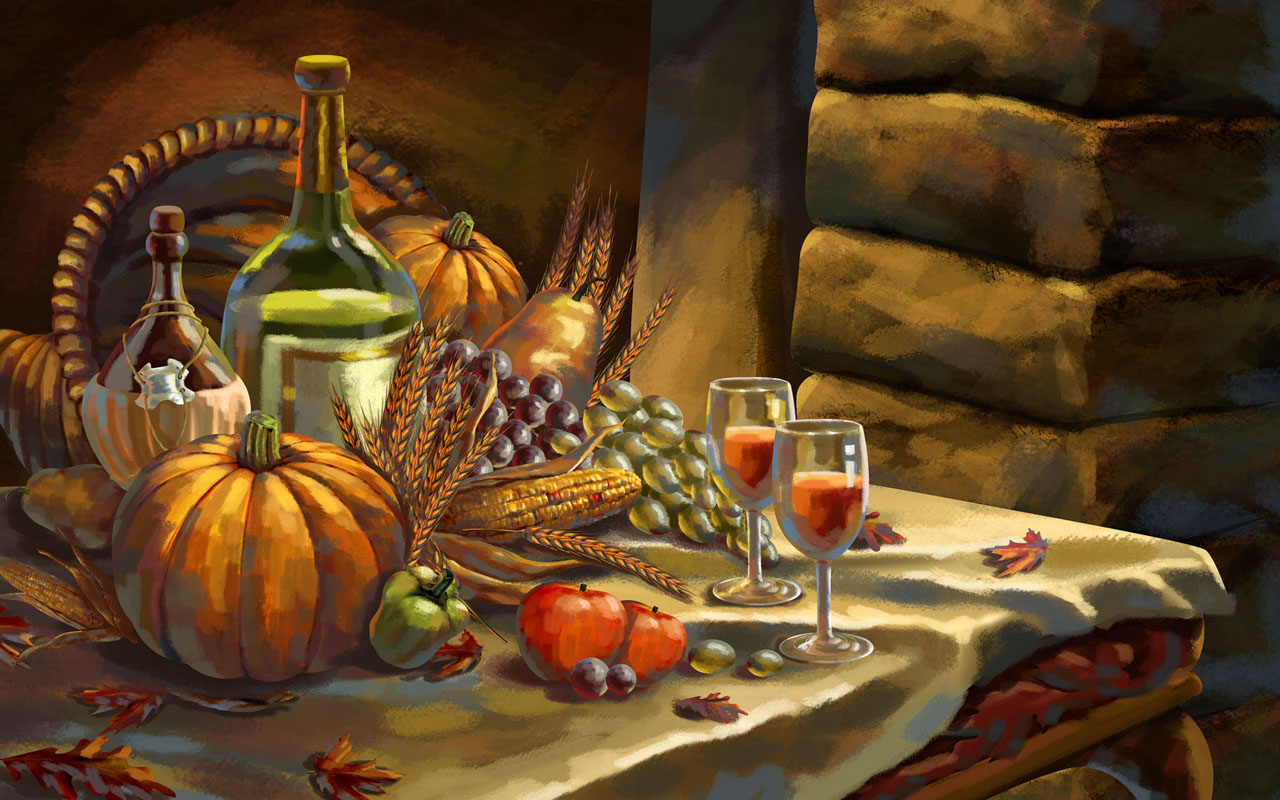
Later this month, Americans will celebrate Thanksgiving Day with festive family gatherings recalling the rejoicing of our Pilgrim forebears. It is a wonderful tradition I joyfully anticipate each year – especially the prospect of roast turkey with oyster dressing! With this theme of thanksgiving in mind, our psalm-of-the-month for November is Psalm 92. In our Lord’s Day morning worship, we will sing Isaac Watts’s paraphrase known by its opening words, “How Good It Is to Thank the Lord.” Thanksgiving was important in ancient Israel, and not just once a year. The opening verses of Psalm 92 provide helpful orientation to how we should weave thanksgiving into our lives throughout the year, especially in corporate worship.
Psalm 92 bears a superscription: “A Psalm. A Song for the Sabbath Day.” Clearly God intended this psalm to be sung by His people in weekly worship – worship that is to be marked by a spirit of thanksgiving. This is a worship song that tells us what good worship song is all about.
It is good to give thanks to the LORD
And to sing praises to Your name, O Most High;
To declare Your lovingkindness in the morning,
And Your faithfulness every night,
On an instrument of ten strings,
On the lute,
And on the harp,
With harmonious sound.
For You, LORD, have made me glad through Your word;
I will triumph in the works of Your hands. (Psalm 92.1-4, NKJV)
Here are a few brief observations from these verses. (1) Offering thanksgiving to the Lord is a good thing! It is ethically the right thing to do, and therefore it is not merely an optional activity for the Christian. While lack of thanksgiving is the hallmark of unbelief (Romans 1.21), the giving of thanks is to characterize the lives of all true believers. (2) Singing praise (sometimes with instrumental accompaniment) is a fitting way to offer thanksgiving. Ordinary speech isn’t enough. Lovers sing of their beloved, which is what we do when we sing to the Lord in corporate worship. (3) Our thanksgiving flows from hearts made glad by God’s Word and lives blessed by God’s work. We sing God’s praises because we have been the grateful recipients of His grace.
Thanksgiving is a suitable activity all day every day (v. 2: “in the morning … every night”), but it is most fitting on the Lord’s Day. As C.H. Spurgeon observes:
Devout praise is always good, it is never out of season, never superfluous, but it is especially suitable to the Sabbath; a Sabbath without thanksgiving is a Sabbath profaned.
In the spirit of Psalm 92, let us seek to make every day Thanksgiving Day unto the Lord. And let us especially prize the opportunity to offer our praise corporately with the saints each Lord’s Day. Let us not be lackadaisical in this regard but really sing out with joy the praises of our great God. When we thus honor the Sabbath and the Lord of the Sabbath with thanksgiving, we please Him and edify one another. It truly is good to give thanks to the Lord!
The Reformation of Worship

October 31, 2017 marks the 500th anniversary of Martin Luther nailing the “95 Theses” to the door of the church in Wittenberg — a signal event often viewed as launching the Protestant Reformation. Many churches will be commemorating and celebrating this anniversary, but this strikes some as odd. A Roman Catholic friend once asked me how it was that Protestants could celebrate one of the greatest schisms in the history of the Church. I replied that we don’t celebrate separation. The Reformation was a tragic necessity given the condition of the Church at the time. We celebrate the fact that the Reformation was a time of recovery and renewal in doctrine and practice. Nowhere is this more evident than in the matter of worship.
The words of a modern Roman Catholic can help us understand the necessity of the reformation of worship in Luther’s day. Josef A. Jungmann, one of the leading Roman Catholic liturgical scholars of the 20th century, outlined the state of late medieval European piety in a 1959 journal article entitled, “Liturgy on the Eve of the Reformation.” While noting some external signs of vibrant liturgical life (active participation in events of church calendar, multiplication of gothic cathedrals, etc.), he acknowledged many signs of weakness and decline.
One key problem was the shift from worship by the people to worship by and for the clergy: “the liturgy was a liturgy for the clergy … [even] in the churches in which the worship of the faithful should have been the primary concern.” Literal barriers entered the sanctuary, such as the rood screen behind which the clergy conducted the mass. Then there was the language barrier, with the services conducted in Latin that the people could not understand. Jungmann admits, “The role of the laity was to all intents and purposes that of a spectator.” One example of this was the lack of congregational participation in the music of worship. He notes disapprovingly that there was “a choir of clerics singing the music belonging to the people!”
Participation in the sacrament of the eucharist changed from partaking of the elements to merely gazing upon them: “Because the faithful no longer wanted to communicate or dared to (the clergy did not encourage frequent reception, to put it mildly), they wanted to see the sacred Host.” This led to the practice of eucharistic veneration and a similar visual fascination with relics of the saints. An increasingly superstitious approach to worship developed which “stressed mere physical presence at Mass in order to gain its fruits.”
In such a state of affairs, Jungmann admits:
It was not hard for Luther to strike a destructive blow against such a system. At least at the outset, he and the other reforming influences already at work in the Church were undoubtedly moved by genuine religious concern. Luther demanded a return to a more simple Christianity.
While the Roman Catholic Jungmann was no apologist for the Protestant cause, he evidenced clear insight into the conditions that spurred the Reformers into action.
John Calvin, for example, made the reformation of worship a top priority. When addressing the question of “by what things chiefly the Christian religion has a standing existence among us,” he answered, “a knowledge, first, of the mode in which God is duly worshipped.” In Geneva, Calvin restored worship to the congregation by conducting services in the language of the people and urging their participation in prayers, praise, and the eucharist. He redressed superstitious practices involving the saints, relics, and theatrical ceremonies. True worship, he reasoned, was to be based on God’s Word and not human whims. Calvin wrote of worship, “We may not adopt any device which seems fit to ourselves, but look to the injunctions of Him who alone is entitled to prescribe.”
The Reformation recovery of Biblical worship and the renewal of proper congregational participation in the liturgy are things worth celebrating. We should not take for granted faithful preaching of Scripture in a language we can understand and the privilege of praying and singing praise to God together each Lord’s Day. These things had once been denied to God’s people, and they are among the many gifts that have come down to us from the Reformation. Let us celebrate this heritage, and, more importantly, live in light of it. Let us enter into worship with hearts and minds fully engaged in honoring God, learning from His Word, and being assured at His sacramental table. When we do so, we will carry on the great legacy of the Reformers. Soli Deo Gloria! To God alone be the glory!
Join us for our Reformation Conference, October 28th – 29th!
On the Glory of “Cuttin’ Grass”
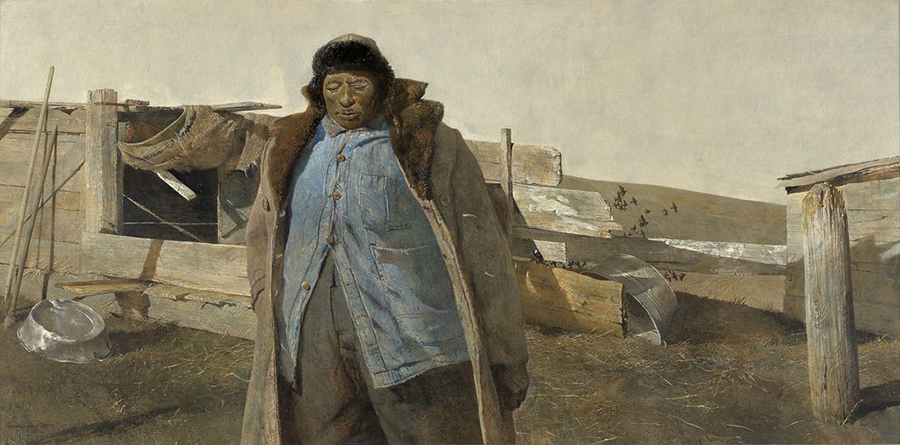
I remember entering through the glass doors and immediately seeing Adam. One couldn’t miss his hulking figure dominating the painting — well-lit and obviously meant to be the focal point at the gallery’s entrance. The exhibition entitled, Andrew Wyeth: Close Friends, featured works by Wyeth relating to African-American neighbors in his community of Chadds Ford, Pennsylvania. Adam Johnson, the titular subject of this particular painting, mowed grass and did odd jobs for the Wyeth family over many years. Adam was Wyeth’s last portrait of the man. His fur cap and heavy overcoat over a denim jacket indicate a winter setting. Adam stands in the foreground, looking downward with eyes almost closed, before one of his work sheds. With hands at his sides, perhaps he is walking away from a job just completed. Bob Dylan once sang that dignity has never been photographed, but I think this painting and others in the exhibit show Wyeth rather successful at painting dignity. Or, more accurately, of painting with dignity folks like Adam Johnson who led a hardscrabble existence. Other Wyeth works feature Adam’s house as well as sheds and fences showing signs of his activity — an overturned basket perched on a post, a jacket folded over barbed wire, hay stacked as winter fodder. Adam is thus present in paintings even when his figure is absent. He has touched this landscape, changed it, made it his own.
The exhibition catalog includes a quotation from Adam referencing himself and his painter friend: “Andy — he’s got the glory of painting and I got the glory of cuttin’ grass, and we ain’t gonna get nothing else.” One could take that in a negative sense, as if Johnson laments his lot in life. But would he use the word “glory” to express such a sentiment? I think that Adam, who was said to be deeply religious, saw that there really was glory in “cuttin’ grass,” just as there was glory in painting. There was something good and right and even revelatory about finding one’s calling in creation and pursuing it with gusto.
Ruminating on this painting and quotation sends my mind back to another Adam, the first Adam. Like Adam Johnson, he was a worker — placed in the garden of Eden “to tend and keep it” (Gen. 2.15). This Adam lived in a wonderful, unfallen world, but he was not supposed to leave it as it was. Pristine wilderness was never the divine plan for all of creation. There was latent glory waiting to be developed as Adam explored the world, learned to work with its resources, and put his stamp upon it in God-honoring ways. This was his duty and his privilege. As my Old Testament professor, Meredith Kline, once wrote, “Invited to be a fellow laborer with God — that is the dignity of man the worker and the zest and glory of man’s labor.”
I do not know whether Andrew Wyeth would have thought in such theocentric categories. But as an image-bearer of God with keen artistic vision, he had a richly human understanding of such things that he captured well in his portrayals of Adam Johnson and his world. Many people justly praise the glory of Wyeth’s paintings. But if we view them through his eyes,we just might come to understand something of the glory of cutting grass and of any of the myriad other callings not often celebrated in our society. We might also be led to reflect on the glory of our own callings and to consider the next way we might put our stamp upon our world for the honor of our Creator.
Image: Andrew Wyeth (1917-2009), Adam, 1963, tempera on panel, 24 1/2 x 48”. Brandywine River Museum of Art, Gift of Anson McC. Beard, Jr., 2002. © 2017 Andrew Wyeth / Artists Rights Society (ARS)
The Challenge of Community
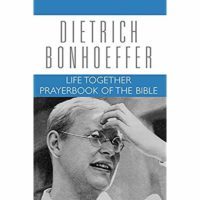
In a recent sermon entitled “Unity in the Church”, I quoted from Dietrich Bonhoeffer’s classic treatment of that theme in his book, Life Together. That volume grew out of Bonhoeffer’s experiment in Christian community with his seminary students in Finkenwalde in the 1930’s, but he says in its preface that the pursuit of Christian community is “a responsibility to be undertaken by the church as a whole.” It is in that spirit that I reflect upon some of Bonhoeffer’s observations that are worthy of consideration and application in our day (and in our congregation).
The Apostle Paul asserts that spiritual unity is a God-given reality:
There is one body and one Spirit, just as you were called in one hope of your calling; one Lord, one faith, one baptism; one God and Father of all, who is above all, and through all, and in you all. (Ephesians 4:4-6)
It is important to remember that the heart of Christian community can never be found in human endeavor. As Bonhoeffer notes, “Christian community is not an ideal we have to realize, but rather a reality created by God in Christ in which we may participate.” The call to community is not a call to create something out of whole cloth. It is a call to live in light of God’s revelation of what He has already accomplished for us through Christ. That is not going to be easy. We are a bunch of sinners. We will need large doses of humility, gentleness, longsuffering, and forbearance in love if such unity in community is to become an ever-growing reality.
In affirming God’s ideal for the church, we will have to let our own ideal views die away. The fact is that each of us has our own view of what the ideal church would look like. My ideal is not the same as yours. That is why Bonhoeffer gave very good advice when he wrote:
Every human idealized image that is brought into the Christian community is a hindrance to genuine community and must be broken up so that genuine community can survive. Those who love their dream of a Christian community more than the Christian community itself become the destroyers of that Christian community even though their personal intentions may be ever so honest, earnest, and sacrificial.
If you hold back from full commitment to this local body because it isn’t perfect according to your standards, then you damage the body. You bring disunity, rather than unity. God in His good providence has placed you in this place with these people and called you to live in light of your calling to make the unity of the church manifest . That means you’re going to have to try to love the person you don’t always like. It means you’re going to have to deny yourself in the interests of others. It means we’ll all have to look at ourselves less and our Lord more.
Let me close with another challenging statement by Bonhoeffer:
I have community with others and will continue to have it only through Jesus Christ. The more genuine and the deeper our community becomes, the more everything else between us will recede, and the more clearly and purely will Jesus Christ and his work become the one and only thing that is alive between us.
May such Christ-centered unity in community become a hallmark of Covenant Presbyterian Church in ever-deepening reality. Such community will be a beautiful witness in a fractured world.
The Ordinary Means of Grace
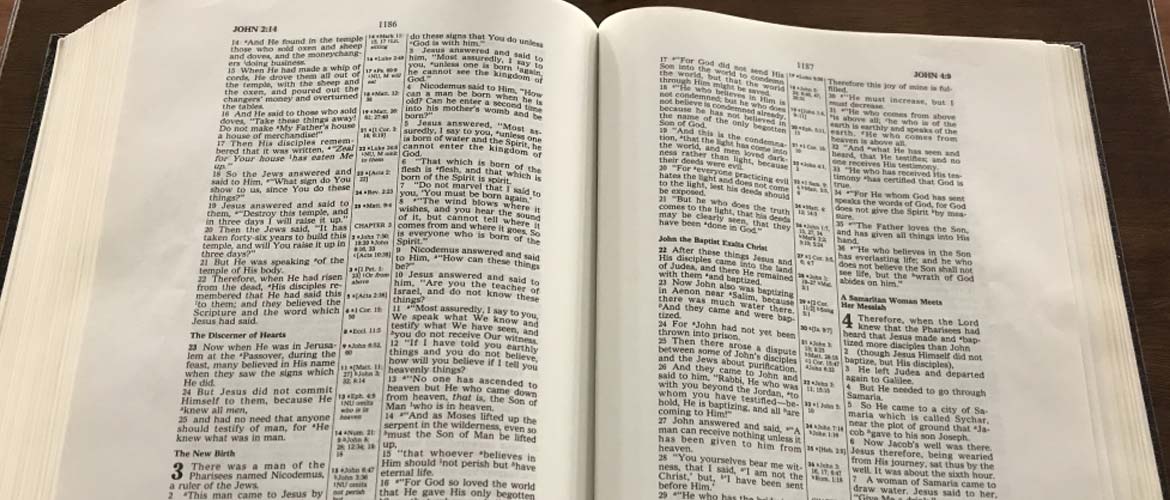
In a culture that celebrates the spectacular and extraordinary, it can sound a bit behind the times to say our church is committed to the ordinary means of grace. What is so exciting about that? The answer is that it is exciting to avail ourselves of the powerful tools God uses to save people from sin and help them grow in godliness.
The Westminster Shorter Catechism identifies the Word, sacraments, and prayer as the “ordinary means by which Christ gives to us the benefits of redemption.” In a Tabletalk article, Ligon Duncan provides a helpful summary of what this means in the life of the church:
Ordinary means ministry believes that the key things that the church can do in order to help people know God and grow in their knowledge of God are: First: emphasize the public reading and preaching of the Word; second, emphasize the confirming, sanctifying, assuring efficacy of the sacraments, publicly administered; and third, emphasize a life of prayer, especially expressed corporately in the church.
All of this takes place preeminently in morning and evening corporate worship on the Lord’s Day.
At Covenant Presbyterian Church, we are committed to ordering our worship with a focus on these ordinary means of grace. Expositional preaching, mostly through whole books of the Bible, is at the center of our worship. But the Word informs every aspect of our service such that it may be said that we read the Bible, preach the Bible, pray the Bible, and sing the Bible. We partake of the sacrament of the Lord’s Supper weekly in morning worship, as God renews His covenant with us and assures us of His grace. And we punctuate our worship with prayers of praise, petition, and commitment, confident that our great High Priest, Jesus Christ, bears our prayers before His Father’s throne of grace.
We may speak of the ordinary means of grace, but we know that God uses the Word, sacraments, and prayer to do extraordinary things in the lives of His people. Come join us for worship this Sunday!
